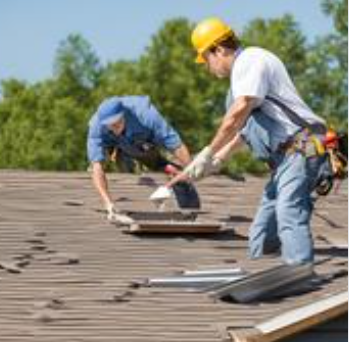
HOW ROOFERS CAN HELP COOL YOUR HOME ALL SUMMER
A “cool roof” isn’t just what the kids call a hip-looking house — it’s a certified system for lowering your energy costs! If you’re in the market for a new or replacement roof, there are just as many options today for energy-efficiency as there are for colors and materials.
How Does It Work?
Cool roof systems can be constructed using tiles, shingles, metal, or special kinds of paint. An Energy Star certified roof works by reflecting more of the sun’s rays, which can then help lower its surface temperature by as much as 100F degrees. It’ll also help prevent that heat from transferring to the interior of your house, which keeps your cooling needs low and will help ensure the longevity of your roofing overall.
What Kind of Material is Best?
Increasingly, residential roofers are recommending metal as an energy-smart material. A cool metal roof will reduce peak cooling demands by as much as 15% and lower a building’s interior temperature by up to 20%. Better yet, metal roofs have a long lifespan and are 100% recyclable.
Alternatively, roofers can apply reflective paint or sheet coverings to existing tile roofs for cooling. Dark-colored tiles and shingles are especially prone to soaking up heat rays, but a reflective sheen can bounce sunlight back off into the air.
How Does It Affect the Environment?
In addition to the benefits, think about the impacts a simple energy solution like efficient roofing can have on the environment and landscape overall. Reduced cooling demands mean less electricity used in summer, which can reduce overall emissions from power suppliers. All told, cool roofs can even help reduce the local air temperature!
Cool roof options are available for virtually every type of home and commercial building, from low to steep slopes and from old tiles to brand-new constructions. The type that’s best suited for you may depend most heavily on your climate, so speak with local roofers to find out what you can do to have a positive impact on the environment while keeping your home cool and comfortable all summer long!

Recent Comments